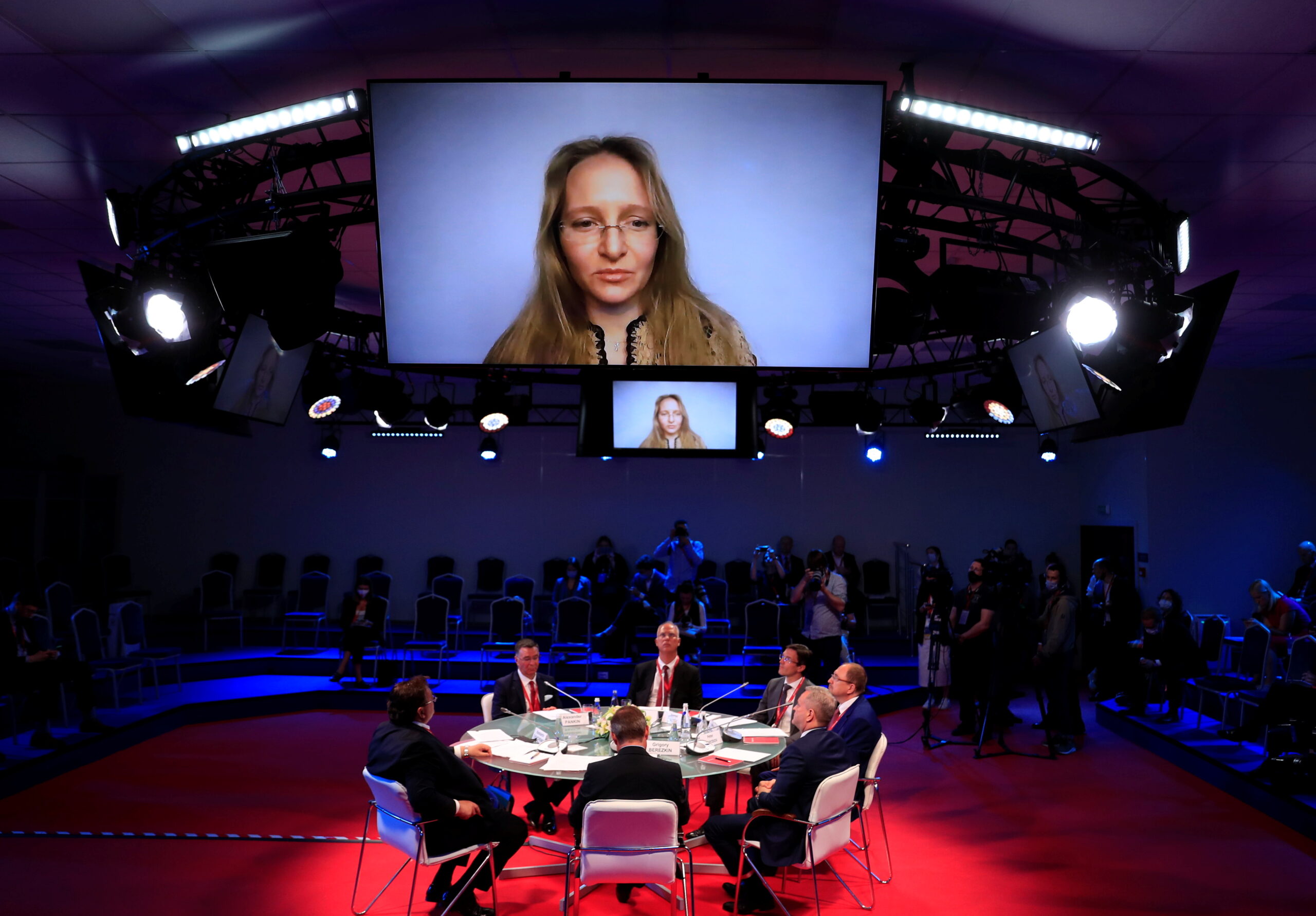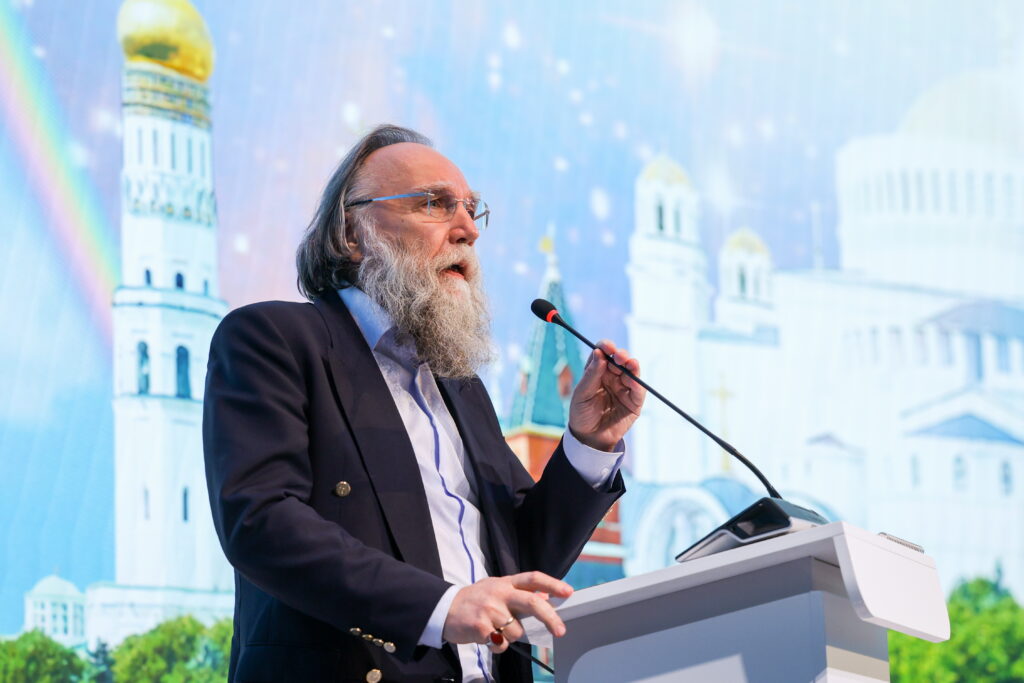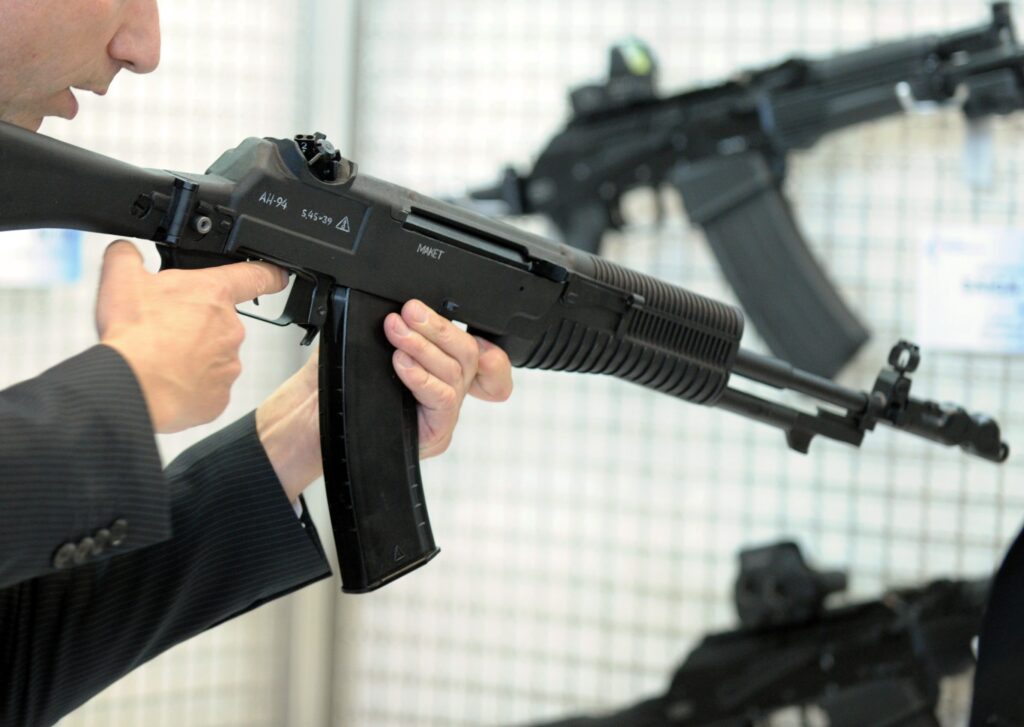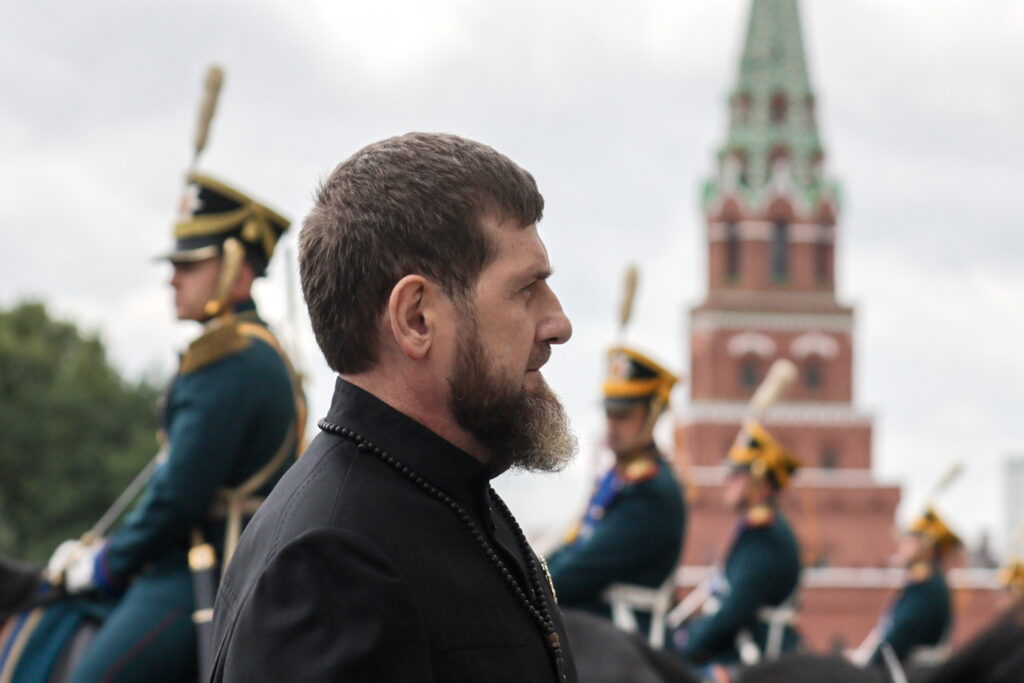Political experts and authors of politicized Telegram channels increasingly talk about a super-influential «circle» formed around Vladimir Putin’s daughter, Ekaterina Tikhonova. According to this theory, it includes nearly all young and ambitious government and Kremlin employees aiming to replace the old elite and establish a new order of social justice. This idea rationalizes the chaos of «wild Putinism» and offers a clear scenario for the future, in which Putin hands over power to his daughter. Indeed, an elite group has formed around Tikhonova, but it cannot be called highly influential or numerous.
The Mysterious Myths of Vladislav Surkov
Russia’s power vertical under Vladimir Putin has always sought to appear as a «thing in itself,» a system comprehensible only to a narrow circle of insiders. For external observers, even experts, the decision-making processes within it are meant to remain as opaque as possible. This design of the power vertical was deliberately created in the late 2000s by the Kremlin’s political bloc, led by Vladislav Surkov, with the involvement of Gleb Pavlovsky’s «Foundation for Effective Politics.» They sacralized power for pragmatic political technology purposes. The president and his entourage wanted to retain control. The image of a «spy bringing order,» crafted by Pavlovsky and Surkov, was becoming outdated. By the late 2000s, order seemed achieved, the mission of the «silovik in a civilian chair» was complete, and, logically, power should have gradually been transferred to new figures. The sacralization of power through the formula «if not Putin or his appointee, then who?» was meant to address this issue.
The Kremlin’s political bloc began promoting the idea that only Putin and his team could govern Russia, fulfilling the mission of «saving the country.» In the 2007 elections, «United Russia,» led by the president, called its program «Putin’s Plan.» The sacralization of power required an aura of mystery, so the already complex decision-making system, balancing the interests of clans, groups, and, above all, siloviki, was shrouded in even more fog. Everyone understood that the final word rested with Vladimir Putin. However, the politicized public and elites began to wonder: the president cannot possess all information on every issue, so someone must influence his decisions, proposing certain steps. This created a demand for identifying the «penultimate instance,» the most influential group or structure in Putin’s entourage. Surkov’s political bloc successfully claimed this role. Surkov himself appeared as a demiurge, pulling the secret levers of the power machine, giving orders to siloviki, the cabinet, United Russia, governors, and the systemic opposition. Thanks to his efforts, the political bloc became synonymous with the Kremlin or the Presidential Administration, and the head of the political bloc is still often mistakenly called the head of the Administration. After Vladislav Surkov’s departure as political overseer, the myth of the «demiurge,» which barely reflected reality, faded away.
Hope in Shkolov
Vyacheslav Volodin, upon becoming head of the political bloc, abandoned the «demiurge» myth and created a narrower, more pragmatic image. He focused on maintaining the political facade of the power vertical, interacting with the systemic opposition, using carrots and sticks to keep it within tighter boundaries after the 2011−2012 Bolotnaya and Sakharov protests. Volodin «filtered» gubernatorial elections and turned United Russia into a monolithic subunit of the Presidential Administration. However, the role of the «demiurge,» the second most influential figure or structure after Putin, remained vacant. This caused tension among the politicized public, which sought clarity in the chaotic power system. Political scientists proposed various models that were functional and relevant at certain moments. For example, Evgeny Minchenko developed the concept of «Politburo 2.0» (a collective decision-making scheme involving key officials and members of Putin’s inner circle). Later, sociologist Konstantin Gaaze proposed the «court» concept, where those responsible for the president’s leisure gained increasing influence. However, these models were complex even for an engaged audience and failed to answer the key question: who is second to Putin in this system?
With the rise of politicized Telegram channels, their authors began trying to identify this «harmonizing» figure or structure. The most notable attempt was the emergence of the so-called «Shkolov group.» The term first appeared in an article by Sobesednik titled «Vladimir Putin, Corruption, and a Demonstrative Slap to Sergei Ivanov.» Its author, deputy editor-in-chief Oleg Roldugin, wrote that the position of then-Administration head Ivanov was weakening, while the «Shkolov group» was strengthening its position in the Administration. At the time, Evgeny Shkolov was Putin’s aide on personnel issues. Subsequently, rumors about the «Shkolov group’s» strikes and counterattacks by other influential clans spread in the politicized Telegram segment, particularly amplified by the Nezygar channel. Nothing concrete was known about the group’s composition or actions, and soon the «Shkolov group» became a meme used to explain any actions of the authorities, opposition, or even natural phenomena. The term likely emerged after Shkolov headed a working group to combat illegal financial operations. The word «group» was associated with real clans in Putin’s entourage—such as the Kovalchuk brothers, the Rotenberg brothers, Sergei Chemezov, and Igor Sechin. However, these clans had clear memberships and resources, while the «Shkolov group» had neither. In 2018, Shkolov was dismissed as Putin’s aide, and his «super-influential group» naturally ceased to exist.
But the search for a center of supposed real influence—primarily on Putin—continued. The politicized public sought «successors,» «shadow» prime ministers, and ministers. For example, in 2023, talk emerged about the «Turchak group.» Like the «Shkolov group,» this term arose after Andrei Turchak, then secretary of United Russia’s general council, headed a presidential working group on mobilization. Supporters of the theory of Turchak’s growing influence believed he could leverage the military theme, important to the president, to achieve his goals, such as becoming head of St. Petersburg or speaker of the Federation Council. However, Turchak ultimately lost his positions and was sent to Altai.
The Daughter Holds Sway
The demand for explaining elite processes through a theory of a super-influential structure is understandable, especially amid the growing assets and influence of real clans. Sergei Chemezov’s Rostec group receives nationalized enterprises and strengthens its personnel positions: its representative Denis Manturov became first deputy prime minister, and the former head of the United Aircraft Corporation now leads one of the most attractive regions, Rostov Oblast. The Kovalchuk brothers are expanding into the internet business, while their clan partner Sergei Kiriyenko continually broadens his influence. The Rotenberg brothers also benefit from nationalization, with their structures securing major contracts. However, identifying a «first among equals» among these clans is impossible—this niche remains empty.
The «Tikhonova circle» theory fills this void and provides simple answers not only about current influence but also about what lies ahead. The figures of Vladimir Putin’s daughters—Maria Vorontsova and Ekaterina Tikhonova—have always been surrounded by an aura of mystery. The president himself referred to them as «these women.» Vorontsova and Tikhonova were not highly public figures, but in the past two years, both participated in the St. Petersburg International Economic Forum. This is hard to ignore amid the inexorable move toward a power transition due to Putin’s age and the presence of several «princes» from competing clans. The daughters’ emergence from the shadows may suggest Putin’s plans to transfer power to one of them. However, their activity should not be overestimated: Vorontsova was one of many forum moderators, and Tikhonova spoke only via video, one of hundreds of speakers.
If we seriously consider Putin’s daughters as successors, Ekaterina Tikhonova appears the more likely candidate. Based on a leaked correspondence of her former husband, Kirill Shamalov, she is interested in conservative ideas, and her Innopraktika foundation collaborates with key figures in Russian state business. Tikhonova has a circle of trusted individuals, including Kirill Dmitriev, head of the Russian Direct Investment Fund, who enjoys Putin’s favor and is married to Tikhonova’s close friend Natalia Popova.
If desired, one could construct a «Tikhonova circle» around this relatively narrow social circle, which political scientist Abbas Gallyamov has done. According to him, Putin’s daughter unites young and ambitious bureaucrats dissatisfied with the current state of affairs and the distribution of resources in favor of the «old elite”—Rosneft’s Igor Sechin, Gazprom’s Alexei Miller, the Kovalchuk brothers, and the Rotenberg brothers. They advocate for a new «justice» and are inspired by the ideas of Defense Minister and former First Deputy Prime Minister for Economics Andrei Belousov. These «Tikhonovites» include Dmitriev, Belousov, Putin’s aides and former bodyguards Alexei Dyumin and Dmitry Mironov, another former bodyguard and current Emergencies Minister Alexander Kurenkov, Deputy Prime Minister Alexei Novak, Andrei Turchak, Minister for the Development of the Far East and Arctic Alexei Chekunkov, Putin’s aide Vladimir Medinsky, Putin’s niece and Deputy Defense Minister Anna Tsivileva, and her husband, Energy Minister Sergei Tsivilev.
Based on Chekunkov’s RBC article on «patriotic socialism,» Gallyamov reconstructs the «Tikhonovites’ manifesto.» Chekunkov proposes a concept of «patriotic socialism,» where businessmen, acting as «servants and creators,» work for society’s benefit, and the state supports them and state enterprises with a stable ruble. The theory seems logical: Ekaterina Tikhonova, with her background and interest in ideology, fits the role of the «circle’s» leader. Kirill Dmitriev is well-acquainted with her, Chekunkov worked as Dmitriev’s deputy at RDIF, and the other listed «Tikhonovites» may be concerned about the personnel stagnation in the power system. Unlike the vague «Shkolov group,» this theory offers a clearer composition of participants and their goals.
However, this logical construct lacks one name that immediately casts doubt on it: Deputy Prime Minister and Far East Plenipotentiary Yuri Trutnev. Alexei Chekunkov, a close associate of Trutnev (the son of a good acquaintance of the plenipotentiary), reflects Trutnev’s views in his article. Trutnev has been implementing a similar scheme in the Far East. He has his own political bloc, led by his deputy, political technologist Grigory Kuranov, capable of articulating these ideas and conveying them to the top leadership through the young minister. Chekunkov indeed worked with Dmitriev at RDIF, but their collaboration was brief—two ambitious individuals rarely tolerate each other for long. Since then, Chekunkov’s career has been tied to the Far East and Trutnev. Some «circle» members, like Novak and Belousov, are likely included due to their involvement in RDIF’s supervisory board or their relatively young age for the elite.
There is no doubt that Ekaterina Tikhonova has a social circle, access to the president, and influence on certain processes—major state corporations are donors to Innopraktika. However, the existence of a «circle» ready to challenge the old elite and redistribute its resources is questionable. Representatives of the «old elite”—Igor Sechin, Sergei Chemezov (Rostec), and Alexei Miller (Gazprom)—are on Innopraktika’s board of trustees and are well-acquainted with Tikhonova. The figures labeled as «Tikhonovites» belong to long-established clans: Dyumin, Mironov, and Kurenkov are linked to Rosgvardia head Viktor Zolotov, Chekunkov to Yuri Trutnev, and Novak is close to Sechin and Chemezov. They all continue to protect their groups’ interests. The case of the disgraced Turchak, if considered a «Tikhonovite,» should further question the group’s influence.
The «Tikhonova circle» theory has resonated with the politicized Telegram segment and analysts. Its popularity may stem from the precedent of Boris Yeltsin’s «family”—his daughter Tatyana Dyachenko indeed wielded significant influence in the Kremlin. Young princes, including Boris Kovalchuk, and representatives of other clans and groups have been attributed to the «Tikhonova circle.» Like the «Shkolov group,» it has become a reference point for explaining many processes in Russian politics and economics. The theory’s appeal is understandable: it brings order and rationality to the chaos engulfing the power system. Siloviki are targeting governors and their deputies, Construction Minister Roman Starovoit committed suicide amid resignation and rumors of a criminal case, and creeping nationalization of assets is victimizing major regional businesses. There is no single beneficiary or coordinating center for these processes. Political scientist Tatyana Stanovaya calls this «wild Putinism,» where the president’s role as a reference point is increasingly blurred, and key actors begin playing independent games. The elites, politicized public, and commentators strive to preserve this reference point and find a scenario for the future. The theory of «Tikhonovites» fighting for «justice» offers such a benchmark, but it is likely false.
Real clans are preparing their successors and «princes» to take the reins. Due to their positions and proximity to Putin, Prime Minister Mikhail Mishustin or Moscow Mayor Sergei Sobyanin could be successors acceptable to most clans. Defense Minister Andrei Belousov could also play the role of an equidistant figure. Kremlin political bloc head Sergei Kiriyenko also has ambitions and is on the shortlist of successors. It is possible that, at the moment of an inevitable power transition, Vladimir Putin’s word, as a departing figure, may not be decisive. Against this backdrop, the prospects of Tikhonova’s entourage, which has not formed into a structured group with resources, seem less promising. It is also quite possible that Putin’s daughter herself lacks the ambitions attributed to her.










